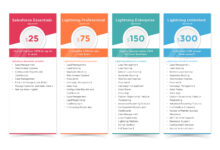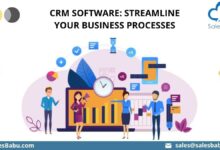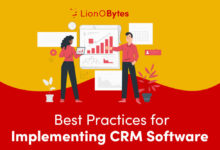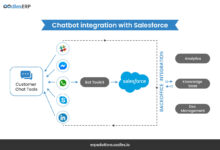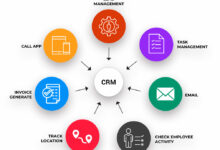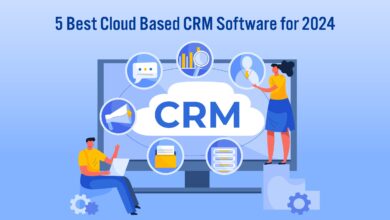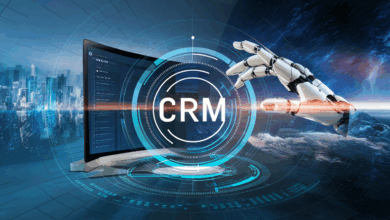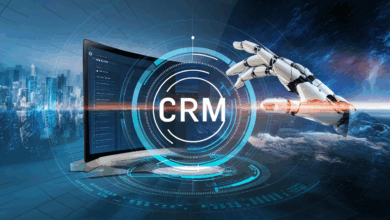Best CRM For Real Estate Agents: The Ultimate Solution For Real Estate Professionals
Best CRM for Real Estate Agents sets the stage for this enthralling narrative, offering readers a glimpse into a story that is rich in detail and brimming with originality from the outset.
In today’s competitive real estate market, having the best CRM tool can make a significant difference in an agent’s success. From managing client relationships to streamlining tasks, a top-notch CRM system is essential for thriving in the industry.
Importance of CRM in Real Estate
CRM systems play a crucial role in helping real estate agents manage their clients, properties, and transactions effectively. By centralizing data and automating tasks, CRM systems can significantly improve productivity and customer relationships in the real estate industry.
Key Features of CRM for Real Estate Professionals
- Lead Management: CRM systems allow agents to track leads, follow up with prospects, and nurture relationships to convert leads into clients.
- Property Management: Agents can easily organize property listings, track showings, and manage property details within a CRM system.
- Task Automation: CRM systems automate repetitive tasks such as email communications, appointment reminders, and follow-ups, saving agents time and improving efficiency.
- Integration Capabilities: CRM systems can integrate with other real estate tools and platforms, such as MLS listings, email marketing software, and financial management systems, streamlining workflows.
Comparison of CRM in Real Estate with Other Industries
While CRM systems are used across various industries, their application in real estate has unique requirements. Real estate agents deal with a high volume of leads, properties, and client interactions, making CRM systems essential for organizing and managing these complex relationships. The ability to customize fields, automate workflows, and track communication history are key features that cater specifically to the needs of real estate professionals.
Must-have Features in a Real Estate CRM
When it comes to choosing a CRM for real estate agents, there are several essential features that can make a significant difference in managing client relationships effectively.
Automation Tools for Streamlining Real Estate Tasks
Automation tools within a CRM can revolutionize the way real estate agents handle their daily tasks. By automating repetitive processes, agents can save time and focus on more critical aspects of their business.
- Automated Email Campaigns: Sending personalized emails to clients based on their preferences and behaviors can help nurture leads and maintain relationships.
- Task Automation: Setting reminders, scheduling follow-ups, and organizing appointments automatically can ensure that no important task falls through the cracks.
- Lead Scoring: Automatically assigning scores to leads based on their interactions with your website or emails can help prioritize high-quality leads.
Integration Capabilities with Other Real Estate Tools
Integration capabilities are crucial for a real estate CRM to work seamlessly with other tools that agents use on a daily basis. This ensures a cohesive workflow and eliminates the need for manual data entry across multiple platforms.
- MLS Integration: Connecting the CRM with Multiple Listing Services can provide agents with up-to-date property listings and information.
- Marketing Tools Integration: Integrating with marketing tools like social media platforms or advertising platforms can help agents reach a wider audience and track the performance of their campaigns.
- Communication Integration: Syncing the CRM with communication tools like email, phone, and messaging apps can centralize all client interactions in one place for easy reference.
Customization Options for Real Estate CRM
Customization plays a crucial role in a CRM system for real estate agents, as it allows for tailoring the platform to meet specific needs and preferences. By incorporating customizable fields and workflows, agents can optimize their processes and enhance productivity in various aspects of their operations.
Tailored Fields and Workflows
Customizable fields in a real estate CRM enable agents to capture and organize relevant information specific to their business. For example, agents can create custom fields for property types, client preferences, or transaction details, ensuring that all essential data is easily accessible and accurately recorded.
- Agents can create personalized workflows that reflect their unique sales process, from lead generation to closing deals. By customizing workflow stages and automation rules, agents can streamline their operations, prioritize tasks, and ensure a consistent and efficient sales pipeline.
- Customizable fields and workflows also empower agents to segment their contacts, properties, and deals based on criteria that matter most to their business. This segmentation allows agents to target specific audiences, personalize communications, and track performance metrics more effectively.
- In a hypothetical scenario, a real estate team could benefit from customized CRM features by creating unique fields for tracking property amenities, such as pool, garage, or view. By customizing workflows to include notifications for new property listings matching specific client preferences, agents can proactively reach out to potential buyers, improving lead engagement and conversion rates.
CRM Data Management for Real Estate
Effective data management is crucial for real estate agents using CRM systems to maximize their efficiency and productivity. Organizing and maintaining client data accurately can lead to better client relationships and more successful transactions. Data analytics tools within CRM systems provide valuable insights that can guide agents in making informed decisions. Here are some best practices for managing data in a real estate CRM:
Organizing Client Data
- Segment clients based on criteria such as property preferences, buying/selling history, location, and budget.
- Regularly update contact information, property details, and communication logs to ensure data accuracy.
- Use tags or labels to categorize clients for targeted marketing campaigns and personalized communication.
Utilizing Data Analytics Tools
- Track client interactions, property viewings, and sales progress to identify trends and opportunities.
- Generate reports on key performance indicators like conversion rates, lead sources, and client satisfaction to measure success.
- Utilize predictive analytics to forecast market trends, pricing strategies, and client behavior for proactive decision-making.
Maintaining Data Accuracy
- Regularly clean and deduplicate client data to avoid errors and inconsistencies.
- Implement permission controls to restrict access to sensitive client information and ensure data security.
- Train team members on data entry protocols and CRM usage to uphold data integrity and consistency.
Mobile Accessibility and Real Estate CRM
Mobile accessibility is a crucial aspect of a CRM system for real estate agents who are constantly on the go. Having the ability to access important client information, property details, and communication logs from anywhere at any time can significantly improve efficiency and productivity in the fast-paced real estate industry.
Improved Efficiency During Property Viewings
- Mobile CRM apps allow real estate agents to access property information, client preferences, and scheduling details on the spot during property viewings.
- Agents can quickly input notes, update client profiles, and send follow-up emails or messages right from their mobile devices, eliminating the need for manual data entry later on.
- By having all the necessary information at their fingertips, agents can provide a more personalized and seamless experience for potential buyers, increasing the chances of closing a deal.
Security Measures for Safe Mobile CRM Usage
- Implementing secure login credentials, two-factor authentication, and encryption protocols are essential to protect sensitive client data and communication logs when using a mobile CRM app.
- Regularly updating the CRM app and mobile device software to the latest versions can help prevent security vulnerabilities and ensure optimal performance.
- Training real estate agents on best practices for mobile CRM usage, such as avoiding public Wi-Fi networks and enabling remote data wiping in case of a lost or stolen device, is crucial for maintaining data security.
CRM Integration with Real Estate Platforms
Integrating a CRM system with real estate platforms is crucial for streamlining processes and maximizing efficiency in the industry.
MLS Listings Integration
MLS (Multiple Listing Service) integration allows real estate agents to access and manage property listings directly from their CRM system, eliminating the need for manual data entry and ensuring accurate and up-to-date information.
- Automated Data Sync: CRM integration with MLS listings ensures that property information, such as pricing, availability, and property details, is automatically updated in real-time.
- Improved Lead Management: By syncing MLS data with the CRM, agents can track leads, monitor property interactions, and provide personalized services based on client preferences.
Property Management Software Integration
Integrating CRM with property management software enables real estate agents to streamline property management tasks, track maintenance requests, and provide better customer service to property owners and tenants.
- Efficient Communication: CRM integration with property management software allows agents to communicate with property owners, tenants, and maintenance teams seamlessly from a centralized platform.
- Task Automation: Agents can automate routine property management tasks, such as rent collection, lease renewals, and maintenance scheduling, to save time and improve operational efficiency.
Examples of Successful CRM Integrations
Several popular real estate tools have successfully integrated with CRM systems to enhance functionality and improve user experience.
Zillow: Zillow integrates with CRM platforms to sync property listings, automate lead generation, and track client interactions for better relationship management.
DocuSign: CRM integration with DocuSign allows agents to streamline the document signing process, manage contracts efficiently, and provide a seamless transaction experience for clients.
Training and Support for Real Estate CRM
Training programs for real estate agents using a new CRM system are crucial for ensuring successful adoption and utilization of the technology. These programs help agents understand the features and functionalities of the CRM, enabling them to leverage its full potential in managing client relationships effectively.
Essential Elements of a Comprehensive CRM Training Module
- Onboarding sessions to introduce agents to the CRM interface and basic functions.
- Advanced training on utilizing CRM features specific to real estate workflows, such as lead management and property tracking.
- Hands-on exercises and simulations to practice using the CRM in realistic scenarios.
- Customization training to help agents tailor the CRM to their unique business needs.
- Ongoing training modules to keep agents updated on new features and best practices.
Tips for Providing Ongoing Support and Troubleshooting
- Establish a dedicated support team to address agent queries and issues promptly.
- Create a knowledge base or FAQ section for agents to access self-help resources.
- Offer regular refresher sessions to reinforce CRM usage best practices and address common challenges.
- Encourage peer-to-peer support within the real estate team to foster collaboration and knowledge sharing.
- Provide access to CRM experts or trainers for personalized assistance when needed.
Cost Considerations for Real Estate CRM
When it comes to choosing a CRM software for your real estate business, cost considerations play a significant role in the decision-making process. Understanding the pricing models, determining ROI, and finding cost-effective strategies are crucial steps in implementing a CRM solution.
Comparing Pricing Models
- Subscription-based models: Monthly or annual fees based on the number of users or features included.
- One-time payment: Pay a lump sum upfront for perpetual access to the CRM software.
- Freemium: Basic features are free, with premium features available at an additional cost.
Determining ROI
Calculating the return on investment (ROI) of a CRM system involves analyzing the increase in sales, cost savings from automation, and improved customer relationships. By measuring these factors against the initial investment, you can determine the value the CRM brings to your business.
Cost-effective Implementation Strategies
- Start with a basic plan: Begin with essential features and scale up as your business grows.
- Training and support: Invest in proper training to maximize the CRM’s potential and avoid costly mistakes.
- Utilize free trials: Take advantage of trial periods to test different CRM options before committing to a purchase.
Case Studies of Successful Real Estate CRM Implementations
Implementing a CRM system in real estate agencies can lead to significant transformations in business operations. Let’s analyze some real-life examples of successful CRM implementations in the real estate industry.
Case Study 1: XYZ Realty Agency
- Lead Tracking and Management
- Automated Follow-Up System
- Personalized Communication
- Increased Lead Conversion Rate by 30%
- Improved Customer Satisfaction and Retention
XYZ Realty Agency implemented a CRM system that focused on lead management and automated follow-ups. This allowed the agents to track leads effectively and nurture them through personalized communication.
Key Features:
Outcome:
Case Study 2: ABC Property Management
- Advanced Analytics and Reporting
- Agent Performance Tracking
- Marketing Strategy Optimization
- Increased Sales by 25%
- Enhanced Decision-Making Processes
ABC Property Management utilized a CRM system with advanced analytics and reporting capabilities. This enabled them to analyze market trends, track agent performance, and optimize their marketing strategies.
Key Features:
Outcome:
Challenges and Lessons Learned
- Effective Change Management is Crucial
- Invest in Comprehensive Training Programs
- Regularly Review and Update CRM Strategies
Despite the success stories, implementing CRM systems in real estate agencies comes with challenges. Some common challenges include resistance to change, data migration issues, and training requirements for staff.
Lessons Learned:
Closure
In conclusion, the Best CRM for Real Estate Agents is a game-changer in the industry, providing a comprehensive solution for professionals looking to enhance their productivity and efficiency. By leveraging the right CRM tools, real estate agents can stay ahead of the curve and maximize their success in this dynamic field.
